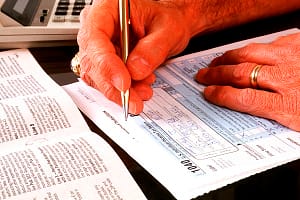Living in a world of uncertainties, getting a property insurance is deemed a must. Insurance protects your home from liabilities and unexpected, unfortunate events such as fires or escaped water damage. Many people cannot afford to fix damages done on a property, so they opt for a property insurance.
But what if the property is unoccupied? You might be wondering if an insurance policy is really needed in unoccupied spaces. The short answer is yes. The long answer is you might even need it more than in occupied property for the virtual reason that an unoccupied property is more prone to something happening to it since no one is tending to it. Simply put, your property is more at risk to losses and damages.
You already might be under a standard home insurance policy. For example, you leave your home for an extended long stay and someone breaks in. You come back thinking you are insured, only to find out that the policy you are under does not cover unoccupied property and you are unable to claim, loss, theft or damage. This happens to lots of people because they are unaware that insurance policies differ if your residence or commercial building is occupied or not. While theft might seem like an obvious coverage in your insurance, it differs if the property is unoccupied.
To protect yourself and your unoccupied house, read on to know more about how Unoccupied Property Insurance is a wise decision to make so you do not have to worry about your home while you are away from it.
What is an unoccupied property?
A property is considered unoccupied if there are still personal belongings in it, be it furniture or other personal items. This differs from a vacant property where it is completely empty of both people and items. This difference is important to clarify to an agency if you want to opt for insurance. If you insure for vacancy, when in fact, your property is unoccupied, you might not be entitled to some of the coverage that unoccupied house insurance covers when you want to make a claim.
The usual classification of an unoccupied property is a property that has been left vacant for 30 days or more. Standard policies do not always cover you for an extended period of time, usually between 30-60 days. But if you know the property will be unoccupied for a longer stretch of time, your property would be safer with a policy made especially for unoccupied places. These properties may or may not have furnishing in them. Unoccupied means that no one is currently dwelling in it.
The amount of personal belonging left in the place can also determine if your property can fall under an unoccupied insurance. A sole couch or chair left would not be considered unoccupied. An unoccupied residence tends to have most items left for sustainable living, such as kitchen utensils and appliances.
Before you commit to any insurance plan, ask the agency how they define unoccupied and vacant insurance.
Reasons why a property might be unoccupied
There are several reasons why a property may be unoccupied and these reasons are valid to seek an unoccupied insurance.
Travel: For any reason you might need to travel for an extended period of time.
Second home: You might have a residence that is just used during certain times of the year, or for holidays, but is vacant the rest of the year.
Moving: If you have moved to a new home, but haven’t sold your old one yet, that old home is considered unoccupied. The same is true if you have bought a new home but haven’t moved into it yet.
Tenants: If you are a landlord and a tenant has moved out and you have no new tenant yet or are not planning to rent for a period of time, you can opt for this type of insurance. Some agencies might ask you to notify the insurer each time after a tenant leaves, while other can provide you an easier long term scheme.
Renovation: Standard home insurance usually will not cover you if you have to move because of renovation. The choice to move out during renovation is often done because of the stress and impracticality of living in a place undergoing renovation. Unoccupied insurance can apply if you are renovating on your own free will, or forced to renovate because of a potential hazard.
Hospital stay: If you have to remain in hospital for an extended period of time, this too accounts for unoccupied property.
What does the insurance cover?
Depending on which company you plan to use, policies might differ. Yet, the most often cover situations include:
Forced-in entry. Mind you, this is covered provided that no windows or doors were left unlocked. A break-in obviously implies a person or persons forced their way in with intent to rob.
Water leakage: A busted pipe is always a main concern in an unoccupied house or building as no one is present to do anything about it.
Natural disasters: A flooding or a storm that has caused damage could be under policy.
Vandalism: This criminal act might also be covered. This would include outside and inside the premises.
This is a general understanding of the type of conditions that can be covered, however, it can differ from company to company.
Coverage on commercial buildings
Claims can get a bit more complicated when there is an insurance claim for a building because claiming its vacancy is dependent on its occupancy. For example, if a building is occupied with a certain percentage of square footage, it may or may not fall under unoccupied insurance depending on that percentage. So for example, if a building is 30% occupied and the rest vacant, the insurance agency will tell you if you can claim unoccupied or vacant insurance.
Because they are different than residencies, you would need to pay attention to some aspect of a building. Some agencies might classify some buildings as ‘hard to insure’. If your building doesn’t have enough tenants or usual operations being performed inside, your property insurance policy coverage may change or even come to a complete halt. This might seem unfair to the building owner, but agencies see it differently. Less tenants means less maintenance done on the building and leaves it more prone to damages or vandalism. In the case of commercial buildings, you need to double check with your agent if the building is considered vacant or unoccupied. What happens often is that building owners under insure their building, and this leaves a large void if they have to make a claim and sometimes they might not be entitled to make a claim at all. All these issues can be sorted out and understood when the building owner is armed with the proper knowledge of what is needed to insure the property enough.
How unoccupied insurance differs from standard policies
The reason why unoccupied insurance is important is because standard home insurance will not cover various damages on the home if the home is uninhabited. If you had to leave your home for an extended period and a fire breaks out during that time, most standard policies will not allow you to make a claim on the damages that have occurred. In theory, damages of certain natures can be avoided, prevented or lessened when there are inhabitants present. Also, the emergency response is deemed to be quicker than if a residency is unoccupied. Due to these reasons and others, insurance companies noted that unoccupied premises stand at a greater risk for an insurance claim. Unoccupied insurance is more specific and more suitable to your need.
If you are already under a standard policy, your agency will discuss with you what your options are in also applying for unoccupied insurance. Many agencies offer package deals that give both types of insurance. Or you might want to purchase a separate insurance. This choice will greatly depend on why the residence is unoccupied. For example, an extended hospital stay away from your residence, while it might be long, it will eventually have an end and you can return back home. This differs, say, from someone who will be travelling for years, or someone who owns a seasonal home. Each case is different, and a reputable agency will help sort out your options.
Potential costs
This will ultimately vary according to the agency. Yet there are a few issues the agency will look into to determine the quote they will give you.
Location: If the property is within a high-risk area of crime, for example, the cost of the insurance will be higher.
Value: If the property is classified as ‘expensive’, and within an expensive area, this would usually mean more expensive costs to cover any damages to it. As mentioned, the belongings in the residence are also classified and calculated to know their value. The more expensive the items, the higher you will probably pay.
Security: You can take an initiative to secure the property better. You might want to invest in an outdoor security camera or an entire security system. This would pose less risk of burglary or vandalism, bringing the cost down. The same applies for safety measures, such as a smoke detector. If possible, you can also have a trusted friend, relative or neighbour pass by the house every once in a while to check on things. Your insurance agency will tell you if certain things like power or gas need to be turned off or not.
Length: Clearly, the longer the time the premise will be unoccupied, the more you will pay. Insurance is all about risk. The longer you are away, the more potential to something happening increases.
Despite that unoccupied insurance is generally more expensive than standard insurance because the residence is more at risk, most agencies take into consideration that unoccupied properties will not remain unoccupied forever. Thus, they will make suitable deals and schemes for you, as some policies may just cover a short term period. So, with a proper understanding and dialogue between you and the agent, it might not cost much more, or the insurance might be coupled in a way with the standard one you are already paying. There are agencies that can offer you full coverage or partial coverage. For example, leaving your residence for work abroad, make the premises an attractive piece for squatters. Squatting is a legal matter and squatters need to be removed and this might be covered by some agencies. It would have additional costs, but often worth it for those who have no means on checking into their property for too long a time.
Being honest
We have all heard stories of people trying to con agencies to claim insurance. Do not try to pass your residence as anything other than what it is, be it unoccupied or occupied. It is not difficult to access if damage or loss was due to un-occupancy or not, nor difficult for an agency to find out if your home is really unoccupied or not. Deceit can cause a claim to be cancelled and thrown out.
By the same token, you have to take some time and thought on which agency you want to go with. In all cases, you want a reputable company with experience. You also have to read the fine print and know what you are owed and what you owe.
There is no benefit at all in having an insurance policy that does not cover you when you need it most. This is unsettling but can be easily avoided if you know what to do and how to do it. You want your residence or commercial building to be as safe and protected just as much as when you are residing in it. Talk to your agent or seek one to know all your options because your home is one of your biggest assets. It is one of the biggest purchases you will make, and you want to make sure that it is protected.





Leave a Comment